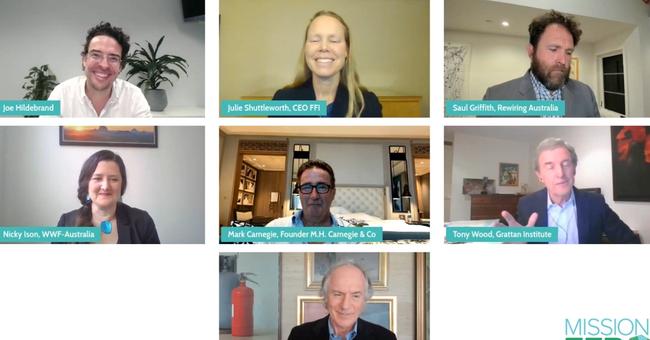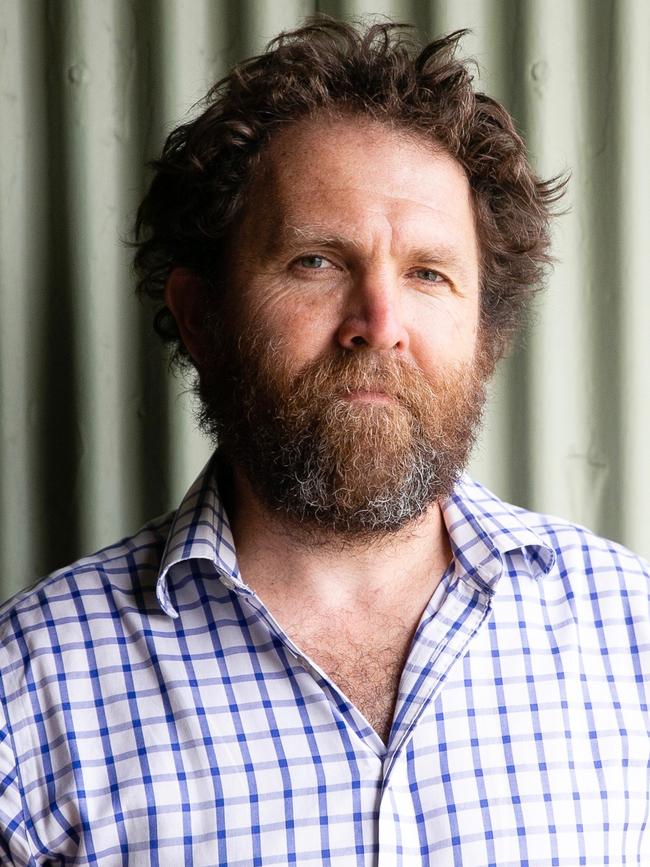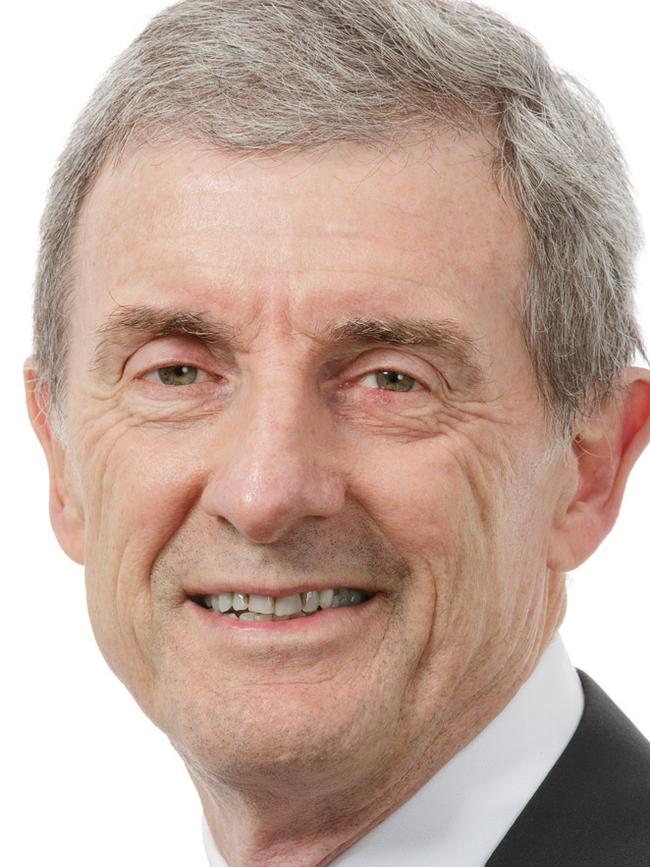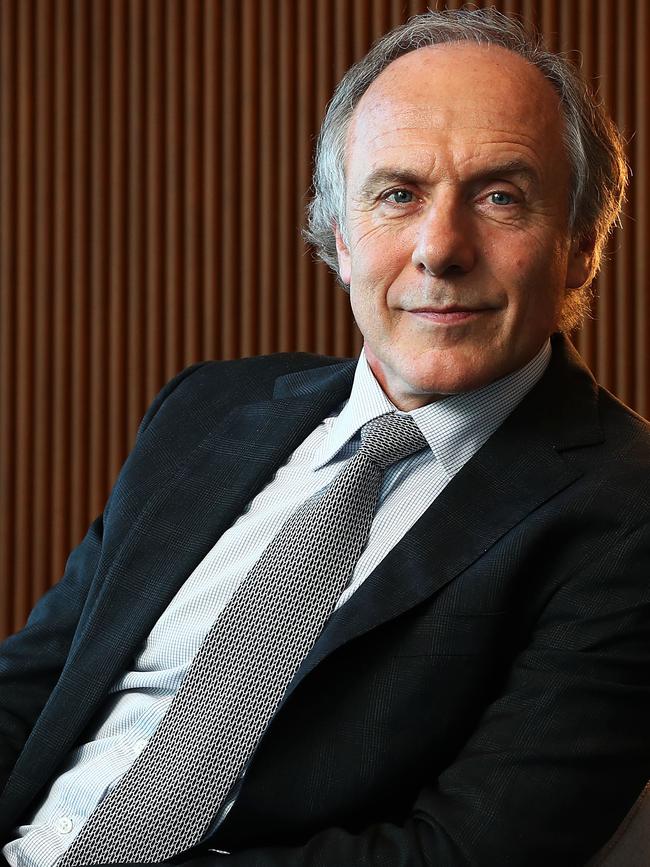Mission Zero 360 Roundtable: Contest of ideas on what net zero means for Australia
WATCH: In our Mission Zero 360 Roundtable, experts have revealed just how close we are to getting to net zero by 2050.
Environment
Don't miss out on the headlines from Environment. Followed categories will be added to My News.
The ‘Climate Wars’ – that stultifying policy logjam that killed prime ministerial careers stone dead and prompted a bajillion column inches over the past 15 years – may finally end this week, a leading Australian energy expert has predicted.
Speaking on Thursday as part of an online forum for News Corp’s Mission Zero series, Grattan Institute director Tony Wood said the setting of a net zero goal for 2050 was “so close you can just about smell it”.
With Prime Minister Scott Morrison close to confirming the position he will take to the COP26 conference in November, after a week of negotiations with the Nationals, Mr Wood said: “I think this week could be the end of the climate war in Australia. It may be next week, we’ll see.”
“Peace will break out, not completely – it may be a cold war – but we can then see a pathway to our future,” he said.
You can watch the roundtable in our video above.

One of Australia’s leading climate thinkers and commentators, Mr Wood said it made sense to start on the emissions reduction journey right away.
“Every big capital decision is going to count if we’re going to get to net zero by 2050,” he said.
And “tens of thousands of smaller decisions” would also have to count, he added, citing the example of small business owners switching from gas to electricity.
Earlier in the forum, inventor and energy consultant Saul Griffiths also advocated early action on switching to renewables, saying it made economic sense.
“We are only about one-tenth of the way through this revolution,” he said. “We need to commit more and faster, so we can realise savings earlier.”
Mr Griffiths also made one of the more provocative points of the forum, raising concern that even the best case scenarios of global warming in the recent IPCC report were predicated on a massive expansion of carbon sequestration schemes. By 2050 these predictions suggested we would need to sequester as much carbon as we emitted, he warned.
Such predictions were “absurd” and “unrealistic,” Mr Griffith said, but nations that wished to lead in this space would “go even harder and even faster to electrification and decarbonisation.”


Former Chief Scientist Doctor Alan Finkel said sequestration was just one part of the emissions puzzle, and the solution would require “a bit of everything”.
“You don’t start with offsets as a solution,” he said. “But there will always be emissions we’ll need to sequester.”
Dr Finkel also provided some valuable perspective on how quickly economics had already changed what is possible in terms of reducing emissions.
“If you go back to the 2000s, every pundit underestimated how rapidly the price of solar electricity would come down, and how wind would come down – we’re talking about a factor of nearly tenfold,” he said.
“It’s the same with batteries. I was in the electric car charging industry back in 2010, and we used to do projections about batteries, and we got everything wrong. We were using the best information available to us at the time.”
Hosted by News Corp journalist Joe Hildebrand, the forum did not shy away from some controversial topics, with both “blue carbon” entrepreneur Mark Carnegie and Nicky Ison from WWF Australia among the panellists who suggested a price on carbon will be necessary in order to reach net zero.


But there was optimism as well, with Ms Ison suggesting Australia was “yet again the lucky country” because of our bountiful sunshine and wind, and big reserves of lithium.
Fortescue Future Industries CEO Julie Shuttleworth was similarly upbeat, putting the case for green hydrogen.
“The technology is there; we just need to do it as scale to drive the cost down,” she said.
And despite his concerns about what is possible with regards to carbon sequestration, Mr Griffiths was also ebullient about the future.
“Australia has the easiest run of getting to net zero of any country in the world, and I think we can do it by 2035 if we are serious,” he said.
“I’m optimistic that Australia will lead the world, and I hope we do.”
You can also email us at missionzero2050@news.com.au
More Coverage
Originally published as Mission Zero 360 Roundtable: Contest of ideas on what net zero means for Australia
Read related topics:Mission Zero





